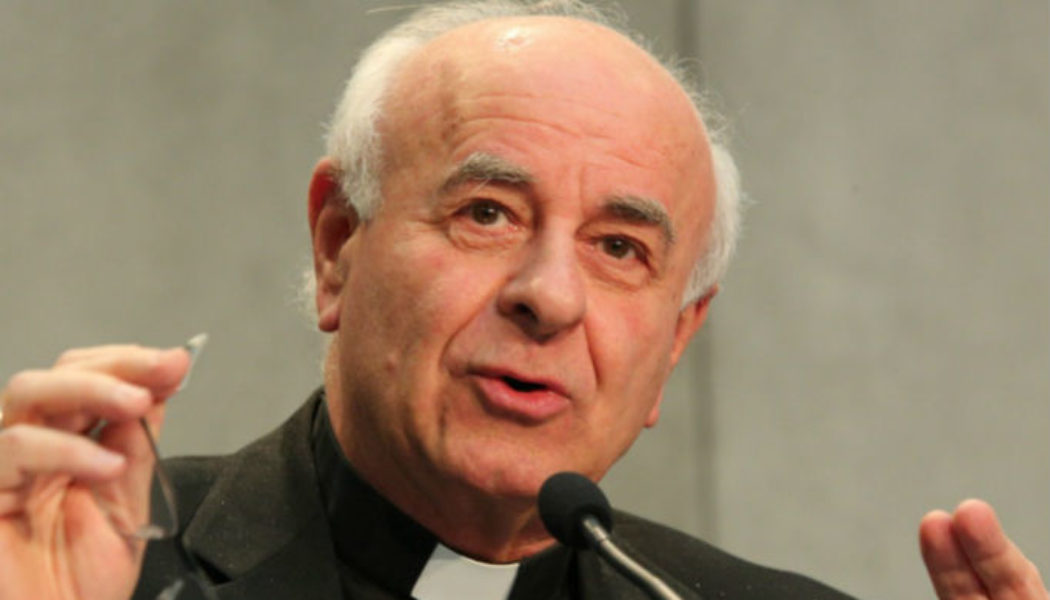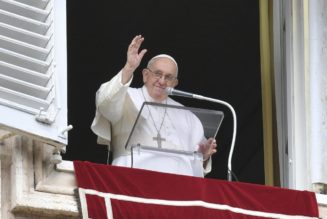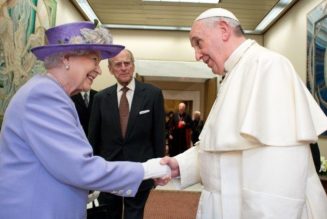
Fifty-five years ago, St. Pope Paul VI promulgated Humanae Vitae, a papal encyclical that unequivocally clarified the Church’s perennial opposition to artificially contracepted sex. Although this teaching faced resistance from several theologians and even bishops at the time, it has been reaffirmed and further developed by subsequent papal teaching, from St. John Paul II’s Evangelium Vitae to the current version of the Catechism of the Catholic Church recently revised by Pope Francis, which describes the practice as “intrinsically evil.”
Now, a Vatican institute, ironically first created by the late great Polish pope and saint, is pushing for a “paradigm shift” in moral theology that would include departing from established teaching on contraception, but also euthanasia and forms of artificial conception—and supporters of this “radical change” are urging Pope Francis to follow suit with an encyclical affirming this radical break from five decades of post-conciliar magisterial consensus.
The revelations are included in a recent text issued by the Pontifical Academy for Life (PAL), an ecclesial thinktank established by St. John Paul in 1994 to study and provide guidance “on the principal problems of biomedicine and of law, relative to the promotion and defense of life, above all in the direct relation that they have with Christian morality and the directives of the Church’s Magisterium.”
PAL describes Theological Ethics of Life: Scripture, Tradition, and Practical Challenges, a 528-page synthesis of the proceedings of a 2021 PAL-sponsored theological seminar, as “a contribution that elaborates a Christian vision of life by expounding it from the perspective of an anthropology appropriate to the cultural mediation of faith in today’s world.”
“A Radical Change”
The text’s introduction, written by Archbishop Vincenzo Paglia, the Academy’s president since 2016, describes the “paradigm shift” in moral theology it introduces as “both descriptive and conceptual, as it follows a pattern that is both argumentative and narrative, theoretical and sapiential, phenomenological and interpretative.”
“The text carries out a radical change, moving as it were, from the sphere to the polyhedron,” wrote Archbishop Paglia. “This is not a handbook of formulas or catalogue of cases that can be taken out of the context of the overall argument. Rather, it is a fundamental exposition of the Christian vision of life, illustrated in its existential aspects that are most relevant to the dramatic nature of the human condition and addressed from the perspective of an anthropology that is appropriate to the cultural mediation of faith in today’s world.”
Part of this shift from previous approaches in moral theology is tied, the text claims, to the guiding criteria of “wide-ranging dialogue,” which intentionally incorporates the perspectives of not only various theological positions, but also non-Catholics and non-believers.
However, apparently not consulted in the production of the document were several active members of the Pontifical Academy for Life.
“As a member of the PAL: the book is not an official statement but the seminar records in which 20 people made their personal statements,” Elena Postigo, a Spanish-based bioethicist shared on Twitter. “Many members didn’t know about it and are astonished.”
Archbishop Paglia also notes that the text was drafted on the 25th anniversary of the promulgation of Evangelium Vitae, John Paul II’s encyclical that reaffirmed the Church’s opposition to contraception and noted its connection to abortion. This was not coincidental, he wrote, but was done “with a precise intent.”
“The vitality of that encyclical and its precious legacy, in order to be honored to the full, required us not to limit ourselves to commenting on it, but rather to decipher its meaning within the framework of the Christian magisterium that brings its teaching to life for today’s Church,” said Archbishop Paglia in the introduction. “This task is always carried out in relation to the living Word of God, which is its ultimately binding rule, and to the new questions posed by the condition of the human subject, who is the designated interlocutor of its wisdom. In this way the Tradition of faith is born, it develops and lives.”
However, many theologians are likely to find dubious the claim that the latest PAL document’s position is in any way a genuine development of Evangelium Vitae — or indeed, the entire body of papal magisterial teaching concerning contraception from Humane Vitae onward. Although the text is not yet available in English, Italian media confirms that it breaks significantly from established Church teaching on contraception. Since there are “conditions and practical circumstances that would make the choice to generate irresponsible,” a translation of the reported text reads, a married couple may decide to resort “with a wise choice” to contraceptive techniques, “obviously excluding abortive ones.”
By any judgment, this is not a different or developed expression of the same moral reality referred to in the authoritative teachings of St. Paul VI and his successors, but a necessary contradiction of the moral truth previous popes described and taught authoritatively.
Questionable Premises
In an interview with America magazine, Jesuit Father Carol Casalone, a member of the Pontifical Academy of Life since 2017 and a drafter of the text, described the seminar and resulting book as an effort to apply “the organic vision” of Pope Francis’s moral approach to issues of bioethics.
“If you put together all that Francis has said, then you will see that there are very new accentuations, for example, in relation to conscience versus the norm [and] ethical discernment (in its connection with spiritual discernment), and this is both new and in continuity with tradition. This is what we are trying to say.”
“As moral theologians,” Father Casolone continued, “We must ask ourselves why these vexed issues continue to be a motive for unease and even desolation among believers. We realized that to reach a better understanding of these questions we had to open a dialogue; and in this dialogical approach we must take into consideration what the people of God understand and feel about them.”
This line of reasoning has commonly been used to suggest that the Church’s magisterial teaching on sexual issues, particularly on contraception, is inauthentic and non-binding. For instance, some point to polling that indicates that 98% of U.S. Catholic women of reproductive age have at some point used artificial contraception to advance this argument.
However, in other places that were not in the grips of the sexual revolution when Humane Vitae was issued, the rate of Catholics who adhere to the Church’s official teaching on contraception is exponentially higher than in the U.S. and Europe.
For instance, a 2014 poll of global Catholic attitudes conducted by Univision found that Catholics in Uganda and Congo had notably lower rates of support for contraceptive use than their American and European counterparts. Similarly, Pew research from the same year found that majorities in African countries like Nigeria and Ghana morally opposed contraception; in the U.S. only 7% of respondents expressed similar convictions.
Reflecting on this significant distinction between the beliefs and practices of Catholics in Western nations from those in Africa and elsewhere seems important for developing a non-Western centric understanding of the Church, a consistent emphasis of the Pope. But in his otherwise favorable review, Jesuit Father Jorge José Ferrer critically described the PAL text as a “primarily European activity.”
Furthermore, while arguments based on popular praxis are often applied by some moral theologians to teachings on sexual issues, these same theologians do not apply them to the Church’s difficult teaching related to economics, war, or the death penalty, suggesting the unreliability of such a criterion for establishing the legitimacy of a magisterial teaching.
Another source for the Academy’s understanding of and intentions for the new document have come via PAL’s official Twitter page, which has actively promoted the document and favorable media coverage, but has also engaged with its critics.
For instance, in response to a comment that the document promoted dissent from magisterial teaching, the PAL account replied, “Be careful: what is dissent today, can change. It is not relativism, it is the dynamics of the understanding of phenomena and science: the Sun does not rotate around the Earth. Otherwise there would be no progress and everything would stand still. Even in theology. Think about.”
The PAL’s comparison of the Church’s consistent post-conciliar teaching on contraception to the inaccurate theory of geo-centrism is not without precedent. In 1964, after Pope Paul VI removed the question of artificial contraception from the Second Vatican Council, Belgian Cardinal Leo Joseph Suenens made a speech critical on the move, stating, “I beg you, my brother bishops, let us avoid a new Galileo affair. One is enough for the Church.” He also opposed Paul VI’s promulgation of Humane Vitae four years later.
Prelude to an Encyclical?
The PAL-push for returning to debates and dissent present at the time of Humane Vitae comes at a time of great division in the Church, which Pope Francis has said flows from a failure to “accept the [Second Vatican] Council.” In that same interview, the Holy Father described a kind of “restorationist” tendency that has “come to gag the Council.”
In his subsequently published apostolic letter on liturgical formation, Desiderio Desideravi, the Holy Father wrote that he does “not see how it is possible to say that one recognizes the validity of the Council — though it amazes me that a Catholic might presume not to do so — and at the same time not accept the liturgical reform” born out of the Council’s pastoral constitution on the liturgy, as well as the subsequent liturgical books promulgated by Paul VI John Paul II.
One wonders if this same understanding of the reception of the Council and warnings about “restorationists” applies to those who similarly reject the magisterium’s consistent moral teaching on contraception steadily issued by these same popes since Vatican II, and continue to revive dissenting views that the magisterium has already rejected.
The PAL and its promoters certainly don’t think so. In his introduction to the new text, Archbishop Paglia described the work as “a service to the magisterium,” that provides “argument support for the ecclesiastical magisterium” and a “stimulus … for the search for a pastoral convergence of theological commitment, without wishing to limit in any way the legitimate confrontation of opinions.”
In fact, some are actively pushing the line that the document will serve as a stimulus for Pope Francis to authoritatively teach their revisions via papal encyclical. At the conclusion of his review for La Civiltà Cattolica, the international Jesuit journal, Father Ferrer suggested that the Academy’s book could help contribute to “future magisterial intervention that makes the Church’s teaching on the ethics of life ever more profound and adequate.” He even hypothesized that Pope Francis could soon issue an encyclical or apostolic exhortation on bioethics, “which he could perhaps title Gaudium Vitae,” meaning “The Joy of Life.”
Gerald O’Connell’s piece for America, titled “Birth control, IVF, euthanasia: The Vatican encouraged dialogue on polarizing life issues. Is a papal encyclical next?,” added further fuel to this speculation.
“Whether Pope Francis will publish an exhortation or encyclical on theological ethics that addresses these and other urgent topics in our human history remains to be seen,” the Vatican-based journalist concluded. The Pontifical Academy for Life’s Twitter account has retweeted the article multiple times, including one instance in which the salacious encyclical speculation was highlighted.
Is Pope Francis likely to take such a step? As Archbishop Paglia made sure to make clear, the Holy Father was “informed from the very beginning about this initiative and the publication of the proceedings,” and apparently has offered his encouragement of the discussion. And as theologian Larry Chapp argued only a month ago, the Pope seems “favorably disposed” to the kind of “proportionalist” moral theology espoused in the Academy’s document.
However, at the same time, despite his willingness to allow conversations on controversial topics previously presumed to be settled, the Pope himself has more often than not been unwilling to cross these doctrinal lines, meaning the wounds being reopened are likely to spill into the next papacy.
One thing is clear. Despite over 50 years of clear and consistent papal teaching on the moral impermissibility of artificial contraception, some actors in the Church —under the guise of developing doctrine — are intent on taking us back to the old wounds and wars of the 1960s. Hopefully, our shepherds won’t allow them to take the rest of us with them.
Join Our Telegram Group : Salvation & Prosperity






